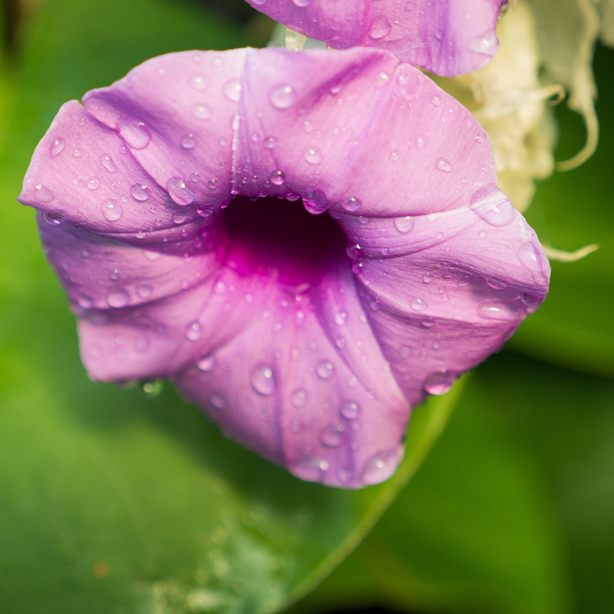
Hawaiian baby woodrose
Scientific names: Argyreia nervosa, Argyreia speciosa, Convolvulus nervosus, Convolvulus speciosus, Lettsomia nervosa
Family: Convolvulaceae
Alternate names: Baby Hawaiian Woodrose, Baby Woodrose, Bidhara, Elephant Climber, Elephant Creeper, Liane d'Argent, Rose des Bois, Silver-Morning-Glory, Vidhara, Vriddadaru, Vridhadaru, Wood-Rose, Woolly Morning Glory
Background
Hawaiian baby woodrose (Argyreia nervosa) is a flowering plant. The seeds are sometimes used to make medicine. They are also used to cause hallucinations.
Hawaiian baby woodrose grows in Florida, California, and Hawaii. The seeds of Hawaiian baby woodrose contain a chemical called lysergic acid amide. Internet sellers promote this as a "natural LSD", even though these chemicals are not the same. Hawaiian baby woodrose can cause serious safety concerns.
Hawaiian baby woodrose is sometimes used for pain relief, but there is no good scientific evidence to support it use. It can also be unsafe.
Hawaiian baby woodrose grows in Florida, California, and Hawaii. The seeds of Hawaiian baby woodrose contain a chemical called lysergic acid amide. Internet sellers promote this as a "natural LSD", even though these chemicals are not the same. Hawaiian baby woodrose can cause serious safety concerns.
Hawaiian baby woodrose is sometimes used for pain relief, but there is no good scientific evidence to support it use. It can also be unsafe.
Safety Safety definitions
When taken by mouth: Hawaiian baby woodrose is unsafe. It can cause side effects such as nausea, vomiting, dizziness, hallucinations, blurred vision, dilated pupils, fast heart rate, and increased blood pressure.
Pregnancy and breast-feeding: It's unsafe to use Hawaiian baby woodrose when pregnant or breast-feeding. Don't use it.
Mental illness: Hawaiian baby woodrose has effects similar to the hallucinogen LSD. There is a concern that people with certain mental health issues might have more severe reactions to using it.
Surgery: Hawaiian baby woodrose might affect levels of a brain chemical called serotonin. This could interfere with surgery. Stop using Hawaiian baby woodrose at least 2 weeks before a scheduled surgery.
Special Precautions & Warnings:
It is unsafe for anyone to use Hawaiian baby woodrose, but people with the following conditions are especially likely to experience unwanted side effects:Pregnancy and breast-feeding: It's unsafe to use Hawaiian baby woodrose when pregnant or breast-feeding. Don't use it.
Mental illness: Hawaiian baby woodrose has effects similar to the hallucinogen LSD. There is a concern that people with certain mental health issues might have more severe reactions to using it.
Surgery: Hawaiian baby woodrose might affect levels of a brain chemical called serotonin. This could interfere with surgery. Stop using Hawaiian baby woodrose at least 2 weeks before a scheduled surgery.
Effectiveness
Effective Effectiveness definitions
There is interest in using Hawaiian baby woodrose for a number of purposes, but there isn't enough reliable information to say whether it might be helpful.
Dosing & administration
There isn't enough reliable information to know what an appropriate dose of Hawaiian baby woodrose might be. Hawaiian baby woodrose can be unsafe. Speak with a healthcare provider before using.
Interactions with pharmaceuticals
Serotonergic drugs
Interaction Rating=Moderate Be cautious with this combination.
Hawaiian baby woodrose might increase a brain chemical called serotonin. Some medications also have this effect. Taking Hawaiian baby woodrose along with these medications might increase serotonin too much. This might cause serious side effects including heart problems, seizures, and vomiting.
Interactions with herbs & supplements
Herbs and supplements with serotonergic properties: Hawaiian baby woodrose increases a brain chemical called serotonin. Taking it along with other supplements that have this effect might cause serious side effects, including heart problems, seizures, and vomiting. Examples of supplements with this effect include 5-HTP, black seed, L-tryptophan, SAMe, and St. John's wort.
Interactions with foods
There are no known interactions with foods.
vital.ly has licensed monographs from TRC Healthcare.
This monograph was last reviewed on 17/06/2024 10:00:00 and last updated on 19/09/2020 01:19:35. Monographs are reviewed and/or updated multiple times per month and at least once per year.
Natural Medicines disclaims any responsibility related to medical consequences of using any medical product. Effort is made to ensure that the information contained in this monograph is accurate at the time it was published. Consumers and medical professionals who consult this monograph are cautioned that any medical or product related decision is the sole responsibility of the consumer and/or the health care professional. A legal License Agreement sets limitations on downloading, storing, or printing content from this Database. No reproduction of this monograph or any content from this Database is permitted without written permission from the publisher. It is unlawful to download, store, or distribute content from this site.




